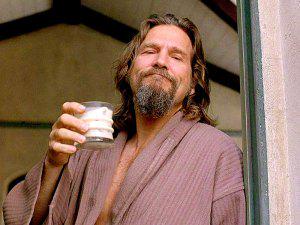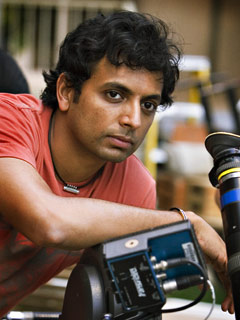Introducing Paul D Marks:
Today I have the honor of introducing our newest SleuthSayer. Usually when there is an opening Leigh and I join forces to come up with suitable candidates. This time it so happened we each came up with the same name: Paul D. Marks. And to our delight, he said yes.
I had met him in November when we served on a panel on Bouchercon. He was funny, thoughtful, generous, and he cleans up nice.
So, who is this dude? Only a Shamus-Award winner for the novel
White Heat, which
received praise from
Publisher's Weekly and made some best of the year lists. It was set in southern California, as is, not surprisingly, Paul D. Marks.
Paul has had more than thirty stories published, including "Howling at the Moon," in
EQMM last year. He has been published and praised in literary journals as well. You can find several of his stories in his collection
L.A. Late @ Night.
According to Steven Bingen, author of
MGM: Hollywood's Greatest Backlot, Paul also has the distinction, dubious though it might be, of having been the last person to shoot on the fabled MGM backlot before it bit the dust to make way for housing.
You can read more about him at PaulDMarks.com Or right here every other Tuesday. Over to you, Paul!
— Rob
***
Adventures in La La Land
by Paul D. Marks
Thank you, Rob, for the great intro. And thanks for saying I “clean up nice.” My mom would be glad to hear that.
Before I get into my first post for Sleuth Sayers, I’d like to thank Velma Negotiable
, oh, and Rob Lopresti and Leigh Lundin and the other Sleuth Sayers, for asking me to come aboard.
Since this is my first post, I thought I’d write about two things I know pretty well, Los Angeles and me. Sort of an introduction to my writing and me, my influences, especially my inspiration for setting. And since it is an intro it might be a little longer than a normal post...
I’m old enough to have grown up in Los Angeles when both Raymond Chandler’s L.A. and Chandler himself were still around. When I was a kid L.A. still resembled the city of Chandler's "mean streets," Ross MacDonald's Lew Archer and Cain's
Double Indemnity. In fact, I grew up in a Spanish-style house very much like the one that Barbara Stanwyck lives in in the movie version of
Double Indemnity.
L.A. was a film noir town for a film noir kid. And that certainly had an influence on me and my writing. And a lot of my writing involves L.A., not just as a location but almost as a character in its own right. Of course, we’re all influenced by our childhoods, where we grew up and the people we knew. And those things, whether conscious or unconscious, tend to bubble to the surface in our writing like the black pitch bubbling up from the La Brea tar pits.
* * *
Two things that Los Angeles means to me are movies and noir, oh, and palm trees, of course. Movie studios and backlots were everywhere in this city. You couldn’t help but see the studios, feel their presence and be influenced by “the movies” one way or another. Many of the studios and backlots are gone now, but almost everywhere you go in this city is a movie memory and often a noir memory. L.A. is Hollywood’s backlot and many films, including many noirs, were filmed throughout the city.
As a kid, a teenager and even a young adult, I experienced many of the places I read about in books and saw in the movies, once the movies got out of the backlot and onto those mean L.A. streets. Not as a tourist, but as part of my “backyard.”
So Los Angeles has insinuated itself into my writing. Here’s some examples of how it might have gotten there and how it reflects my view of the ironically named City of Angels.
Angels Flight is a funicular railway in downtown Los Angeles. Star of many films and many noirs, including
Kiss Me, Deadly,
Criss Cross and others. Chandler visits it in
The High Window and
The King in Yellow. As a young boy, my dad took me to the original Angels Flight (now moved down the road and since closed). And though I may not have known about noir films and hardboiled novels then, it was an experience I’ve always remembered. Such a cool little pair of trains going up and down that hill, the tracks splitting in the middle just as each car approaches the other and you think they’re going to smash into each other head on. Angels Flight slams back to me in memory every now and then and makes its way into my writing, most notably in the eponymous story
Angels Flight, which I must say came out before Michael Connelly’s novel of the same name.
That story, about a cop whose time has come and gone, is still pretty relevant today. The world is changing and he’s having one hell of a time catching up, if he even wants to. He’s a dinosaur. And he knows that Angels Flight is an anachronism, just like he is. He says to the other main character:

“Will Angels Flight bring back the glamour of the old days? Hollywood’s lost its tinsel. Venice’s lost its pier. And there are no angels in the City of Angels. What can Angels Flight do to bring that back?”
“Sometimes you need something for the soul,” the other person says.
I think that sums up a lot of my attitude not only toward Angels Flight but to the City of Angels as well.
In Nathanael West’s
Day of the Locust, Tod Hackett comes to L.A. thinking he’s an artist. And like so many others he gets trampled by that dream. Not much has changed all these decades later in my story
Endless Vacation, when a young woman comes to Hollywood with big dreams and a bigger heroin habit. The narrator tries to help but he also knows:
Who the hell am I to talk? I came to L.A. looking for a Hollywood that died before I was born. A glamorous town of movie stars and studios and backlots. A studio system that nurtured talent, whatever you say about how it also might have stifled it with the other hand. A town that made movies in black and white but whose streets were, indeed, paved with gold. Yeah, I bought it – hook, line and clapboard.
Luis Valdez examines the
Zoot Suit Riots that took place in L.A. during World War II in his play
Zoot Suit. I remember my grandfather, who lived through that time, talking about “
pachucos” when I was a kid. In my story
Sleepy Lagoon Nocturne, set during the war, I take a stab at dealing with the racial tension of that era.
Hot jazz—swing music—boogied, bopped and jived. And Bobby Saxon was one of those who made it happen. Bobby banged the eighty-eights with the Booker “Boom-Boom” Taylor Orchestra in the Club Alabam down on Central Avenue. It was the heppest place for whites to come slumming and mix with the coloreds. That’s just the way it was in those days, Los Angeles in the 1940s during the war.
Venice Beach and boardwalk is the number one tourist destination in Los Angeles.

People think it’s cool and flock to see the “freaks,” and maybe the nearby
Venice Canals. Developer Abbott Kinney wanted to recreate Italy’s Venice in L.A., and he did, to some extent. But it didn’t quite work out. Many of the canals were drained and filled in, though some remain. They can be seen in several movies, too numerous to name. And, because they were another place I’d
done time at, they pop up in my short story
Santa Claus Blues, which opens with a bunch of kids playing along the canals and coming across a dead Santa floating in one of them.
Staring at the canal, Bobby thought about Abbott Kinney's dream for a high culture theme park, with concerts, theatre and lectures on various subjects. Kinney even imported Italian gondoliers to sing to visitors as they were propelled along the canals. When no one seemed to care about the highbrow culture he offered he switched gears and turned Venice into a popular amusement area. And finally the people came.
My grandparents always referred to
MacArthur Park, on Wilshire Boulevard on the way to downtown, as Westlake Park, its original name. It was renamed for General Douglas MacArthur after World War II. But for my grandparents it was always Westlake. When I was a kid it was the place they took me to have a picnic and rent a boat and paddle around the lake. A nice outing. In the movies it’s the scene of a murder in one of my favorite obscure noirs,
Too Late for Tears. By the time of my novel
White Heat, set during the 1992 “Rodney King” riots, the
nature of the park had changed from when I was a kid:
MacArthur Park is midway between Hancock Park, not a park, but an upper class neighborhood, and downtown L.A., a neighborhood in search of an identity. When I was a boy, my grandparents used to take me to the park. We’d rent rowboats and paddle through the lake, tossing bread crumbs to the birds. The park is a different place today. You can still rent paddle boats – if you want to paddle across the lake while talking to your dealer. Sometimes on Saturdays or Sundays immigrant families still try to use it as a park. Most of the time, it’s a haven for pushers, crack addicts, hookers and worse. Even the police don’t like treading there. If they were scared, who was I to play Rambo?
Even if someone’s never been to Los Angeles, most people know
Sunset Boulevard and the
Sunset Strip. Sunset begins or ends, depending on how you look at it, at Pacific Coast Highway on the west and continues to Union Station in downtown L.A., though recently the last part of the jog has been renamed. It goes from wealthy homes in Santa Monica and the West Side, into Beverly Hills, through the Strip in West Hollywood, where hippies back in the day and hipsters today hang out. Into Hollywood and on to downtown. It’s a microcosm of Los Angeles. Of course, both Union Station and Sunset have made multiple appearances in movies and novels and have made several appearances in my writing. Sunset was a major artery in my life as well as in the city. One time I walked almost the entire length of Sunset on a weekend day with my dad, ending up at Union Station. Later, I hung on the Strip. I drove it to the beach. I slammed through the road’s Dead Man’s Curve, made famous in the Jan and Dean song. Sunset appears in my stories
Born Under a Bad Sign,
Dead Man’s Curve,
L.A. Late @ Night and more. In the latter, Sunset is as much of a character in the story as any of the human characters.
She'd only noticed the mansion. Not long after that, her parents had taken her to the beach. They had driven Sunset all the way from Chavez Ravine to the ocean. She had seen houses like the one in the movie. Houses she vowed she'd live in some day.
What she hadn't realized at the time was that there was a price to pay to be able to live in such a house. Sometimes that price was hanging from a tag that everyone can see. Sometimes it was hidden inside.
And who doesn’t know the famous—or infamous—
Hollywood Sign? Something I saw

almost every day as a kid, and which a friend of mine and I hiked up to many, many years ago, before it was all fenced in and touristy. In
Free Fall, originally published in Gary Lovisi’s
Hardboiled magazine, a man recently separated from the service, heads west, as far west as he can go until he comes to the terminus of Route 66 in Santa Monica, near the Santa Monica Pier. This is the end of the road for him in more ways than one.
I kept looking at the Hollywood Sign, wondering about all the people down below, pretending to be in its glow. Where do they go after L.A.? There is nowhere, the land ends and they just tumble into the arroyos and ravines, never to be heard from again.
So this is a sampling of my writing and my relationship to L.A., La La Land, the City of the Angels, the Big Orange. Could I have written about these places without experiencing them? Sure. We can’t experience everything we write about. But hopefully it has made my writing more authentic.
Maybe there are other cities less well traveled that would be ripe for exploration in movies and books. Maybe L.A. is overworked and overdone. But Los Angeles is part of me. Part of who I am. So it’s not only a recurring locale in my writing, it’s a recurring theme. And I’ve only just touched the surface here of Los Angeles, the city, its various landmarks and neighborhoods and my relationship to it.
So that’s part of what shaped me and makes me who I am. And some of my L.A. story. You can take the boy out of L.A., but you can’t take L.A. out of the boy. Oh, and here’s an L.A. story for you (a true one): I’m one of the few people who pulled a gun on the LAPD and lived to tell about. But that’s for another time.
 - A bad-boy, rough-around-the-edges raptorwhisperer hero who is shown to be both brave and compassionate, in an early scene where he rescues a colleague.
- A bad-boy, rough-around-the-edges raptorwhisperer hero who is shown to be both brave and compassionate, in an early scene where he rescues a colleague.






























